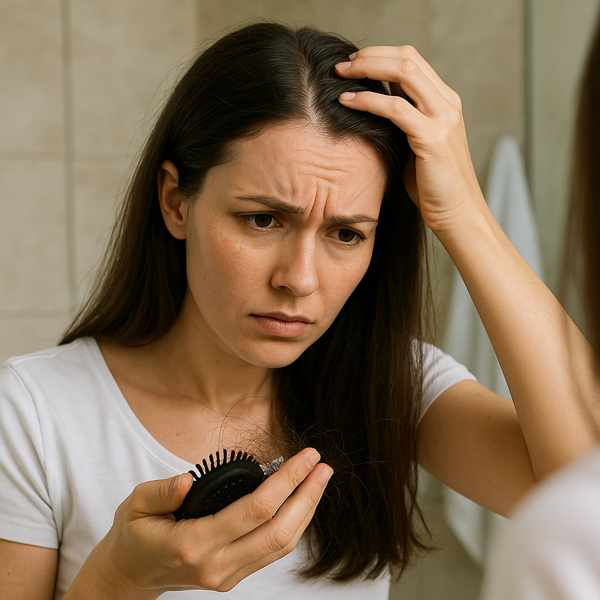Weight Loss and Hair Loss
Weight Loss and Hair Loss
Blog Article

So what’s the connection between weight loss and hair loss, and how can you manage both successfully?
Understanding why this happens and how to protect your hair can help you reach your goals without compromising your confidence.
What Causes Hair Loss After Losing Weight?
Hair loss during weight loss is usually a result of physical stress or nutritional deficiencies.
Common causes include:
- Lack of protein, iron, or vitamins
- Extreme calorie restriction
- Hormonal imbalances
- Rapid weight loss
Temporary Hair Loss Explained
Most hair loss related to weight loss is called telogen effluvium.
Key facts:
- There’s a delay between cause and effect
- No bald patches, just thinning
- Hair usually grows back with time
Nutrients Critical for Hair Health
If you're trying to lose weight, be sure not to miss these nutrients:
- Essential for hair structure and growth
- Iron
- Biotin and other B vitamins
- Supports hair tissue repair and growth
- Vitamin D
Skipping meals or using crash diets can easily lead to deficiencies that trigger hair loss.
Staying Healthy Without Sacrificing Hair
You don’t have to choose between losing weight and keeping your hair.
Tips include:
- Aim for 1–2 pounds per week
- Eat a nutrient-rich diet
- Especially during calorie restriction
- Manage stress and sleep
- Stay hydrated
How to Manage Hair Loss During Your Journey
If you notice excessive shedding:
- Don’t panic
- Check for deficiencies or thyroid issues
- Focus on protein and iron intake
- Try gentle hair care
- Hair regrowth takes a few months
When to See a Professional
A doctor or dermatologist can help identify underlying issues like:
- A common cause of both weight and hair changes
- Autoimmune conditions
- Severe nutritional deficiencies
Conclusion
Weight loss and hair loss can be connected, but they don’t have to be permanent partners.
Prioritize nourishment, patience, and website consistency, and your body will thank you — from head to toe. Report this page